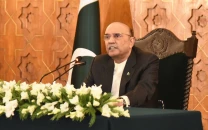Postcolonial hangover partly to blame for stunted local government in Pakistan, India and Bangladesh
The South Asian countries have not kept up with the evolution of these systems internationally.

Postcolonial hangover partly to blame for stunted local government in Pakistan, India and Bangladesh
Today, much is revealed by the local government laws in place in different countries. Sophisticated scholarship and the evolution of local government in the more progressive countries highlight the shortcomings of the laggards.
In Pakistan, the recently introduced local government laws introduced by the four provinces are framed in this unflattering light. But so are the laws of Bangladesh and India, the two countries that share a history with it. The backwardness of their present is rooted in their colonial past. The shackles of these three neighbours are still painfully visible.
The peculiar conditions in these countries reveal how they are still trapped in their self-limiting colonial heritage and have little knowledge of developments that have taken place outside their borders. This exposes a clear absence of interest in learning about foreign systems or learning from them. They do not understand that the evolution of local government in most countries, even developed ones, has been informed by some knowledge of foreign systems. For example, the United Kingdom, United States, Canada, Turkey and China are among the countries that have advanced their systems with foreign knowledge.
It would behoove Pakistan, India and Bangladesh to be more proactive in this regard as the systems they cling to were influenced by foreign systems to a significant degree, for good and ill. They would be better placed to judge where they stand at present if they did any research into what they received under colonial rule and what they were denied, what has transpired on this front since then in their former colonial ruler and in countries whose systems have some relation to it (including the ones in East Asia and China).
If only the leaders in Pakistan, India and Bangladesh realised that in the late 1800s these very countries were beneficiaries of an early form of integrated local governance outside Europe and the United States. The form they received was the modest three-tiered rural one initially introduced by Lord Ripon in Bengal. In Europe the robust three-tiered French rural system established in 1789 (which inspired the 19th century Indian and British systems) and decentralization in Paris (the origin), inspired the systems of Budapest and London thereafter. In the US, the decentralized system of New York after consolidation and the New England town systems which had submunicipal parts were early examples of pioneering systems.
Integrated local governance became the bedrock of China’s economic development and today exists in most continents in some form or another. Yet this former leading South Asian region remains in a backward state and is actively committing self harm by not trying to understand why.
A piece of the puzzle is the economic transformation in Britain - the Industrial Revolution that was fed by the raw material provided by its colonies. While Britain developed its manufacturing strength, its colonies were largely relegated to rural economies. This is one major reason why India’s role in the global economy shrank so drastically while Great Britain’s rose as precipitously. This is also why local governments didn’t evolve in India as they did in Great Britain.
It is the role local governments play in manufacturing and service economies that highlights their importance for economic development. The agglomeration economies and development of clusters enable economic advancement and productive efficiency. No country reveals this example as well today as the much-studied example of China. Hence, since the 1800s, Great Britain has been evolving its local governments, while the South Asians continue to live in deteriorating systems that are unable to meet the needs of urbanization of a greater order than what the British experienced during the onset of industrialisation.
The longer time the British lingered in their Indian colony, relative to other regions, may also be a contributing reason for the stunting of local government development in India, Pakistan and Bangladesh compared to other developing countries that were former British colonies for shorter periods. Take the example of Ghana. This former British colony with a population a little larger than Karachi’s has discarded its British-era system. While it still has much room to evolve, it is more advanced than Punjab, Khyber-Pakhtunkhwa and Balochistan. Its new system is a more integrated one and gives larger urban areas special distinction as can be seen in the structure allowed for the metropolitan assemblies.
If you compare, Sindh certainly emerges better than the other three provinces and yes, even Bangladesh and India in some respects. Yet, there is room for improvement. Provincial governments need to understand that excessive control saps the will to be productive and this ultimately harms provincial interests. Local governments can be empowered to do much more today to build national economies than was perceived in the past when their workings were biased in favour of running an administration and delivering services.
Mayraj Fahim is a Senior Fellow of the City Mayors Foundation and writes about local government on its website with an international perspective. She can be followed on Twitter @MayrajFahim
Published in The Express Tribune, October 11th, 2012.



















COMMENTS
Comments are moderated and generally will be posted if they are on-topic and not abusive.
For more information, please see our Comments FAQ